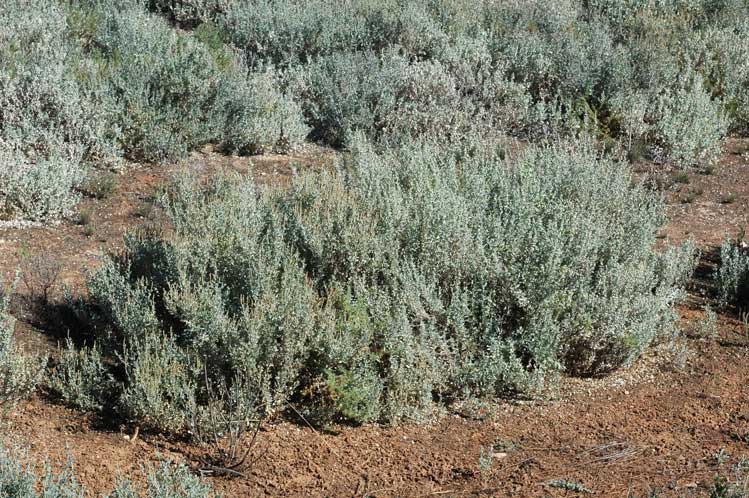Atriplex Vesicaria on:
[Wikipedia]
[Google]
[Amazon]

 ''Atriplex vesicaria'', commonly known as bladder saltbush, is a species of flowering plant of the family '' Amaranthaceae'' and is endemic to arid and semi-arid inland regions of Australia. It is an upright or sprawling shrub with scaly leaves and separate male and female plants, the fruit often with a bladder-like appendage.
''Atriplex vesicaria'', commonly known as bladder saltbush, is a species of flowering plant of the family '' Amaranthaceae'' and is endemic to arid and semi-arid inland regions of Australia. It is an upright or sprawling shrub with scaly leaves and separate male and female plants, the fruit often with a bladder-like appendage.

 ''Atriplex vesicaria'', commonly known as bladder saltbush, is a species of flowering plant of the family '' Amaranthaceae'' and is endemic to arid and semi-arid inland regions of Australia. It is an upright or sprawling shrub with scaly leaves and separate male and female plants, the fruit often with a bladder-like appendage.
''Atriplex vesicaria'', commonly known as bladder saltbush, is a species of flowering plant of the family '' Amaranthaceae'' and is endemic to arid and semi-arid inland regions of Australia. It is an upright or sprawling shrub with scaly leaves and separate male and female plants, the fruit often with a bladder-like appendage.
Description
''Atriplex vesicaria'' grows as an upright or sprawling, perennial shrub up to high. The leaves are sessile, elliptic to oblong or egg-shaped with the narrower end towards the base, long, wide and scaly. The edges of the leaves are entire, occasionally toothed, with the leaf tips pointed or blunt. Male and female flowers are usually borne on separate plants. Male plants usually bear flowers in clusters on simple or branchedpanicle
A panicle is a much-branched inflorescence. (softcover ). Some authors distinguish it from a compound spike inflorescence, by requiring that the flowers (and fruit) be pedicellate (having a single stem per flower). The branches of a panicle are of ...
s or spikes long, the flowers with five similar perianth segments. Female flowers are borne in clusters of two to many in upper leaf axils and lack a perianth, the ovary
The ovary is an organ in the female reproductive system that produces an ovum. When released, this travels down the fallopian tube into the uterus, where it may become fertilized by a sperm. There is an ovary () found on each side of the body. ...
surrounded by two bracteoles. After flowering, the bracteoles swell to long and wide, and usually have a thin-walled, bladder-like appendage attached.
Taxonomy
''Atriplex vesicaria'' was first formally described in 1870 by George Bentham in '' Flora Australiensis'' from an unpublished manuscript byRobert Heward
The name Robert is an ancient Germanic given name, from Proto-Germanic "fame" and "bright" (''Hrōþiberhtaz''). Compare Old Dutch ''Robrecht'' and Old High German ''Hrodebert'' (a compound of '' Hruod'' ( non, Hróðr) "fame, glory, honou ...
. The specific epithet
In taxonomy, binomial nomenclature ("two-term naming system"), also called nomenclature ("two-name naming system") or binary nomenclature, is a formal system of naming species of living things by giving each a name composed of two parts, bot ...
(''vesicaria'') means "bladder-like" or "inflated", referring to the appendages on the fruiting bodies. The name 'Atriplex' is from the Latin ''atriplexum'', meaning orache, a plant used as a spinach substitute.
In 1938, Paul Aellen
{{Short pages monitor